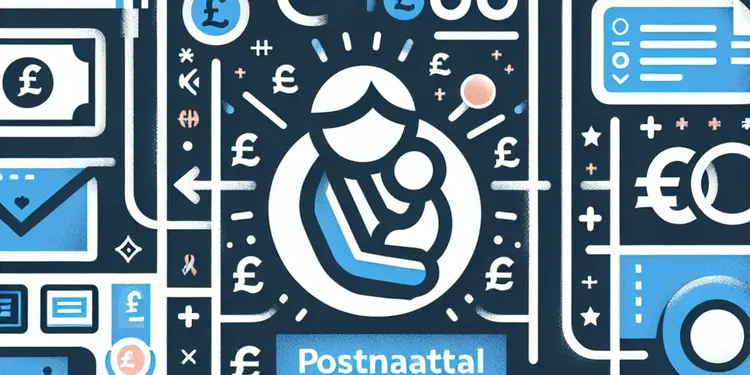
Find Help
More Items From Ergsy search
-
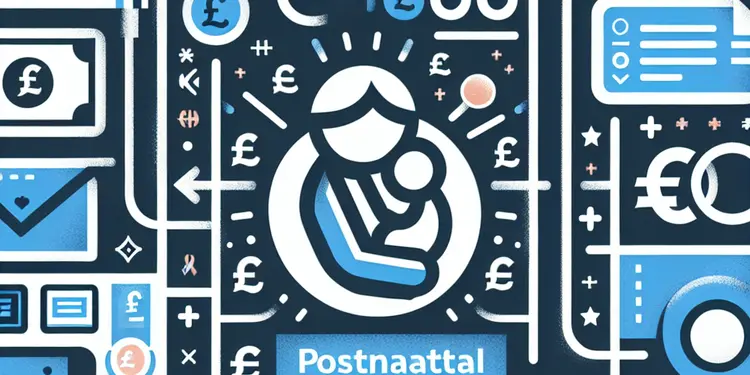
Is postnatal depression preventable?
Relevance: 100%
-
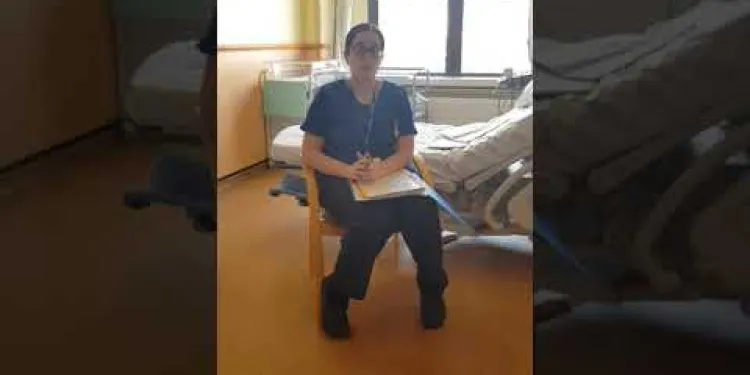
Postnatal Depression
Relevance: 86%
-
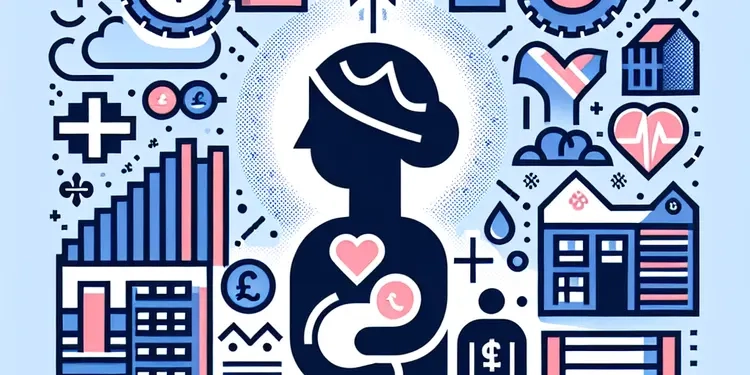
What is postnatal depression?
Relevance: 84%
-

Is postnatal depression a long-term condition?
Relevance: 81%
-
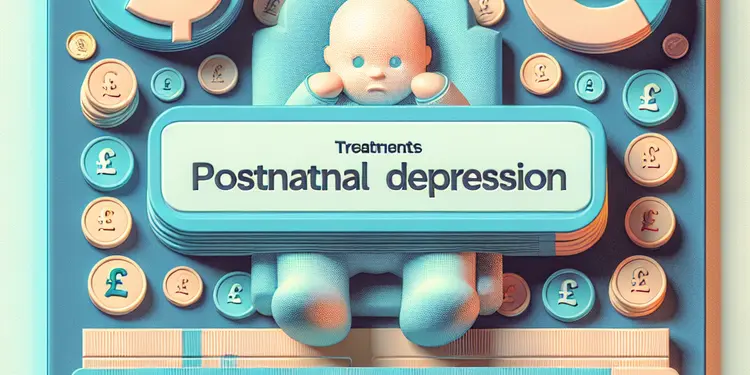
Are there treatments available for postnatal depression?
Relevance: 80%
-

Postnatal Depression - Leanne's Story
Relevance: 80%
-
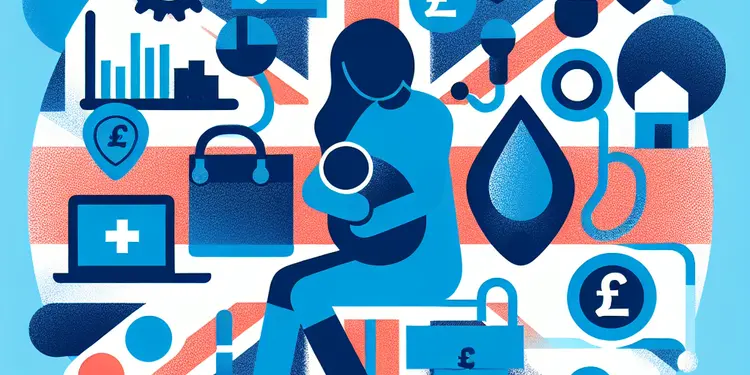
How is postnatal depression diagnosed?
Relevance: 80%
-

What causes postnatal depression?
Relevance: 79%
-
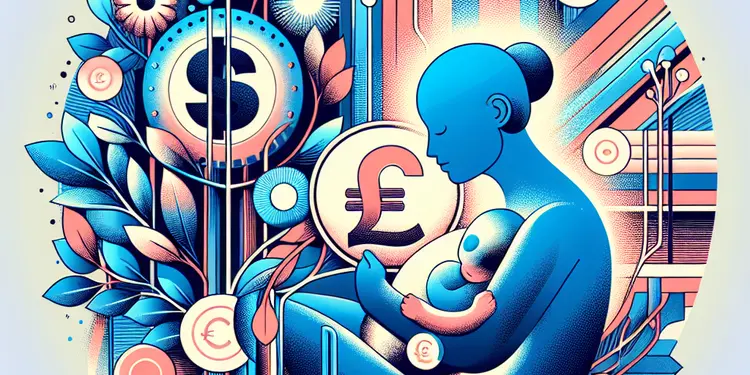
What are the symptoms of postnatal depression?
Relevance: 78%
-

Can fathers experience postnatal depression?
Relevance: 77%
-
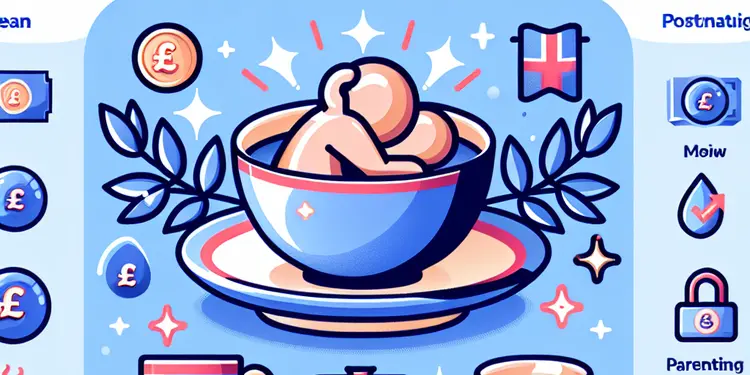
Are there support groups for postnatal depression?
Relevance: 77%
-
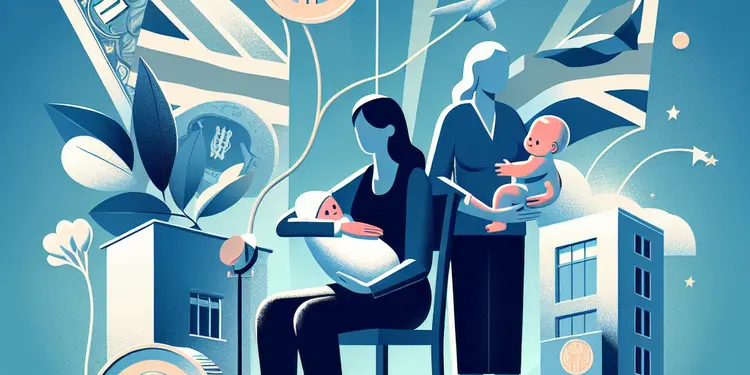
Can postnatal depression recur after treatment?
Relevance: 77%
-

Can postnatal depression affect subsequent pregnancies?
Relevance: 75%
-
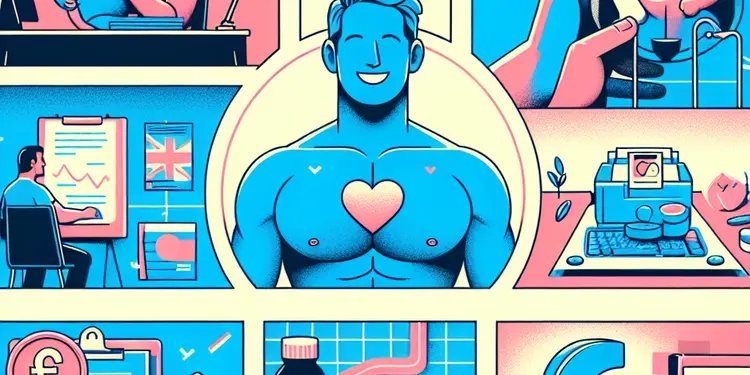
Is medication necessary for treating postnatal depression?
Relevance: 75%
-
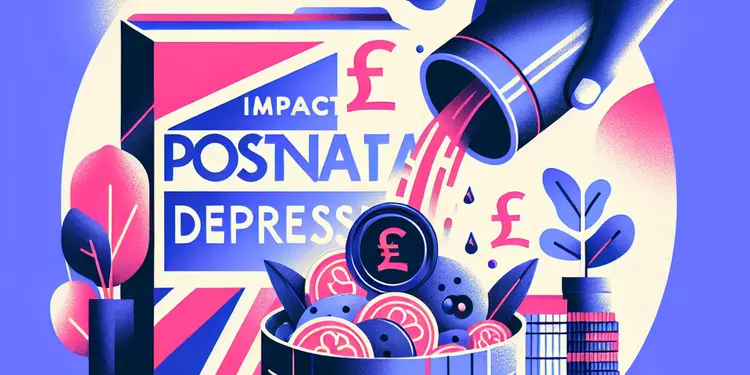
Can diet impact postnatal depression?
Relevance: 75%
-
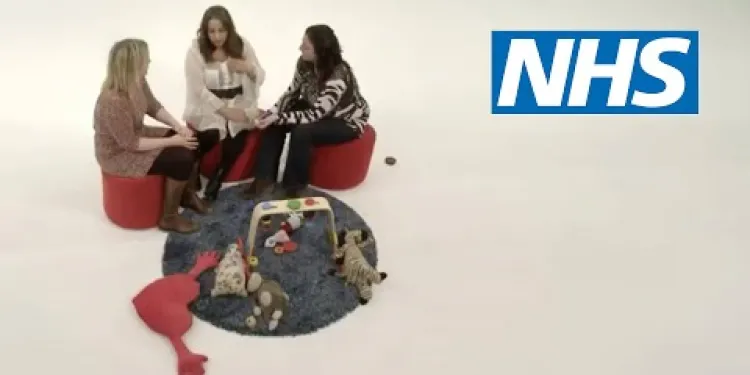
How do I know if I have postnatal depression? | NHS
Relevance: 75%
-
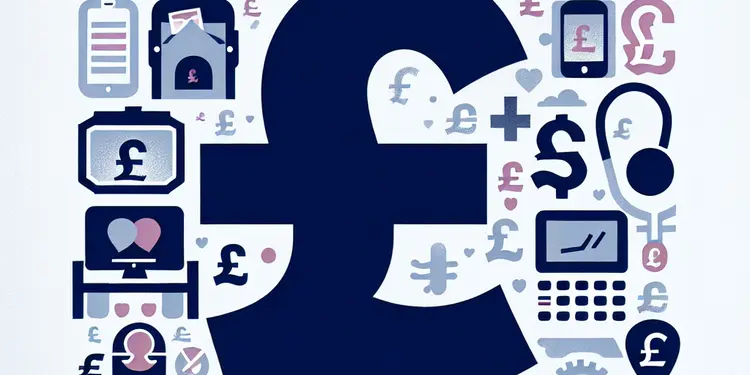
What should I do if I suspect I have postnatal depression?
Relevance: 74%
-

Should someone with postnatal depression seek professional help?
Relevance: 73%
-
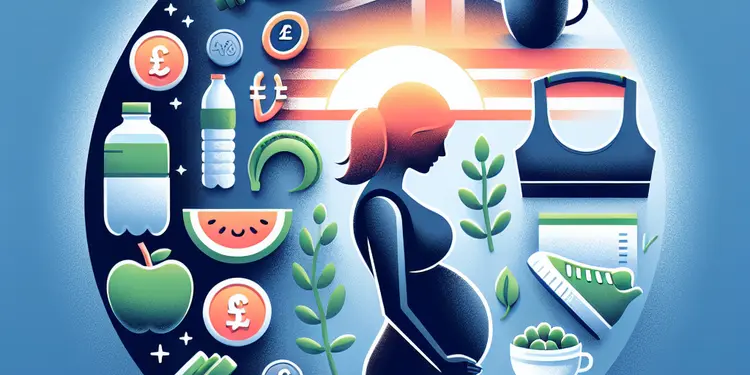
Can lifestyle changes help with postnatal depression?
Relevance: 73%
-
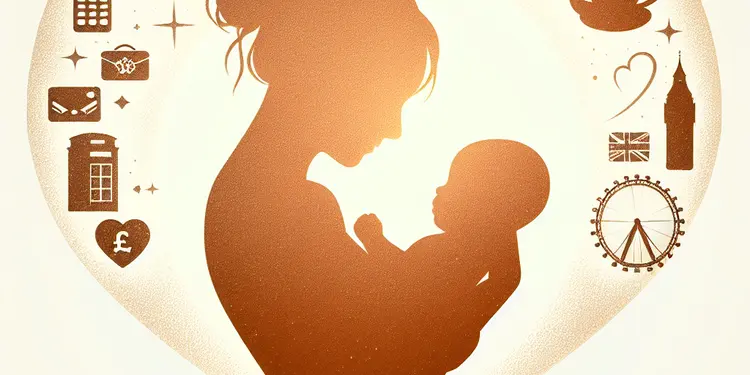
How does postnatal depression affect bonding with the baby?
Relevance: 72%
-
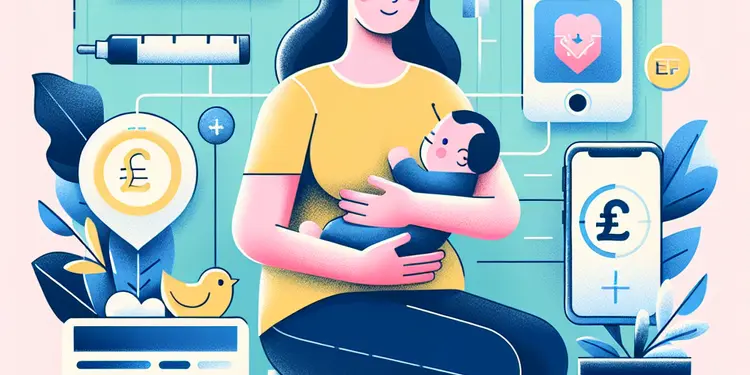
How is postnatal depression different from the 'baby blues'?
Relevance: 71%
-
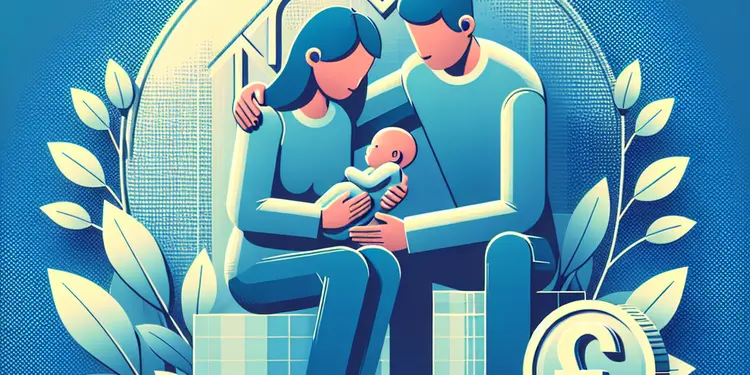
How can family members support someone with postnatal depression?
Relevance: 64%
-
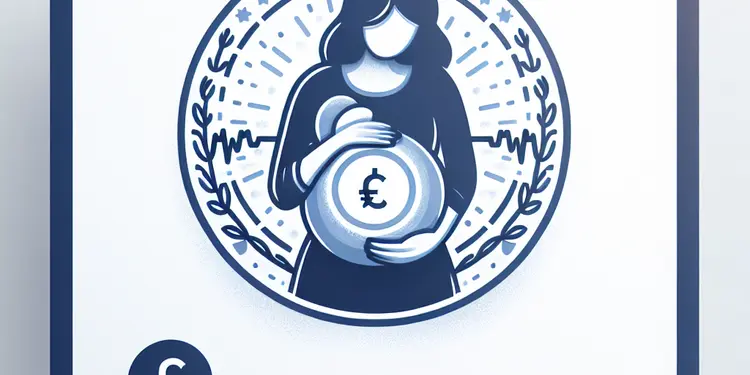
How soon after childbirth can postnatal depression occur?
Relevance: 49%
-
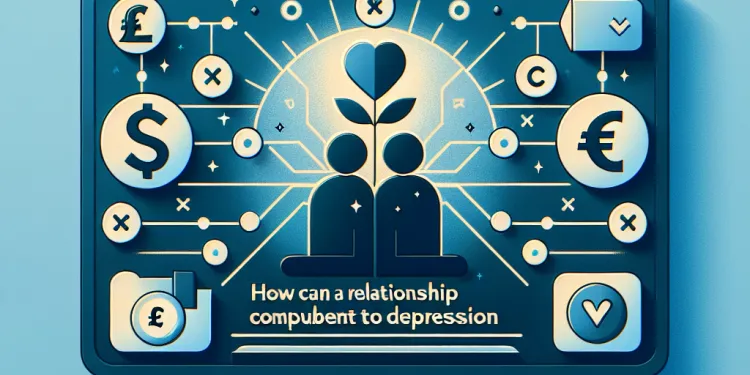
How can a relationship contribute to depression?
Relevance: 34%
-

Treating anxiety and depression - www.slam.nhs.uk
Relevance: 33%
-
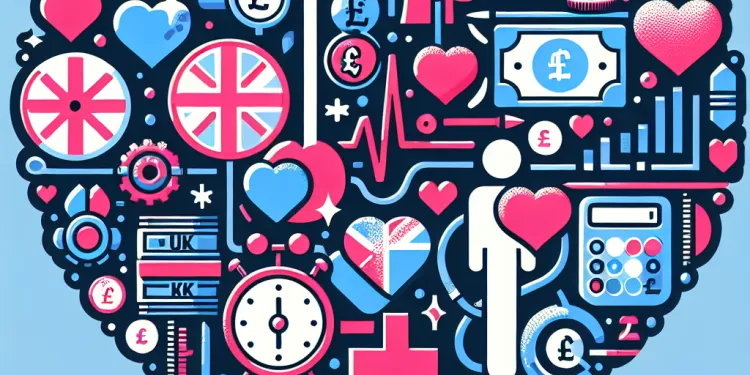
What are the signs that my relationship is making me depressed?
Relevance: 32%
-

Clinical depression: Lawrence's story | NHS
Relevance: 32%
-
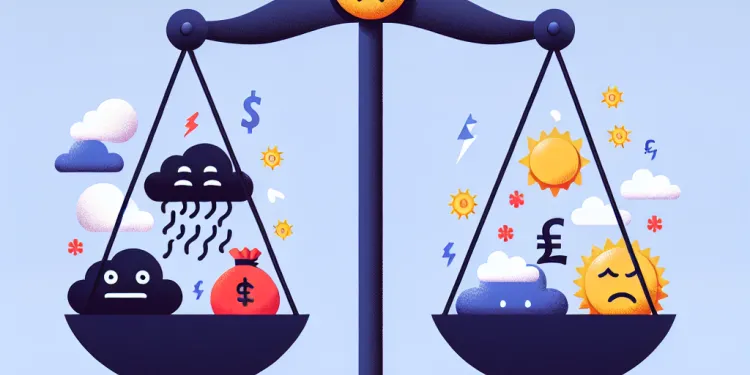
What role do unhealthy dynamics play in causing depression?
Relevance: 32%
-
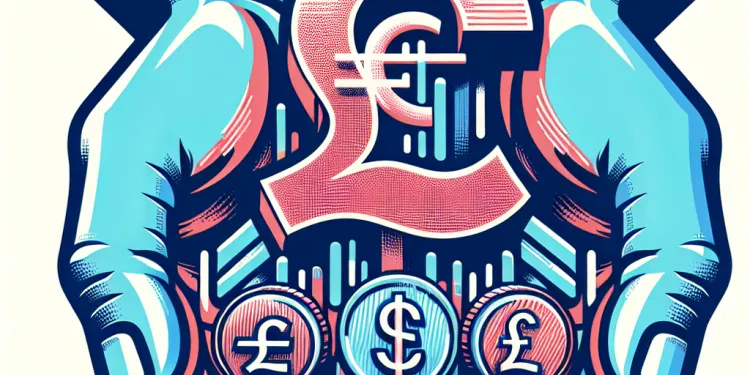
Are there any self-care strategies to cope with relationship-induced depression?
Relevance: 31%
-
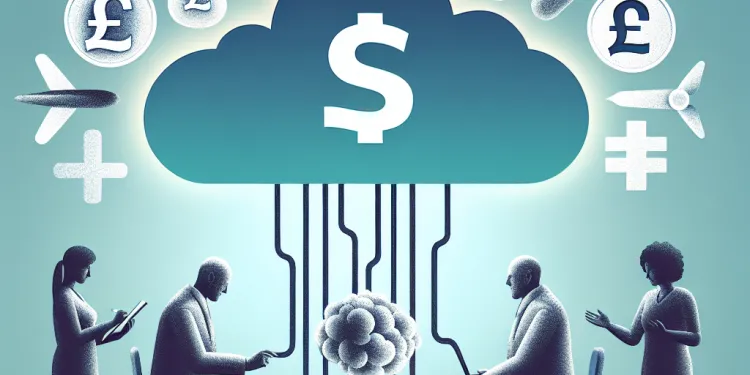
Can physical symptoms be linked to relationship-induced depression?
Relevance: 31%
-
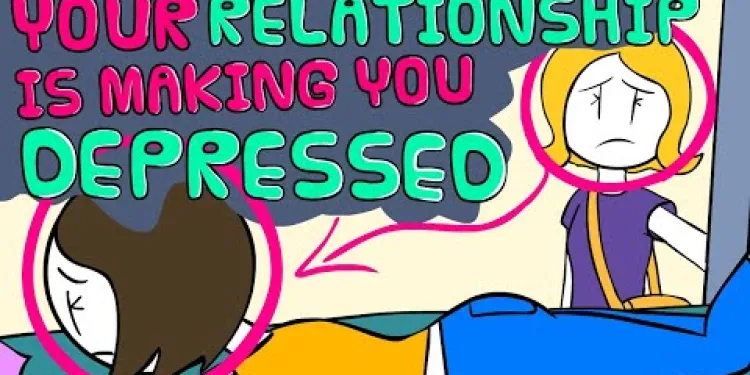
7 Signs Your Relationship is Making You Depressed
Relevance: 30%
-
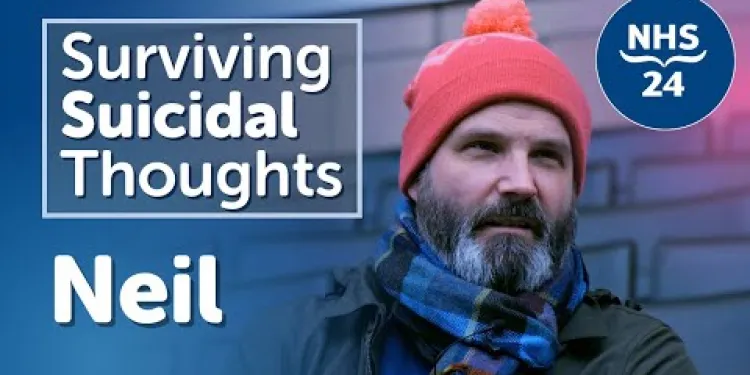
I couldn't celebrate Hibs beating Hearts because I was that depressed
Relevance: 30%
-

What should I do if my partner dismisses my feelings of depression?
Relevance: 27%
-

Postpartum Health: Mother and Baby
Relevance: 24%
-

How quickly can ketamine alleviate depression symptoms?
Relevance: 22%
-
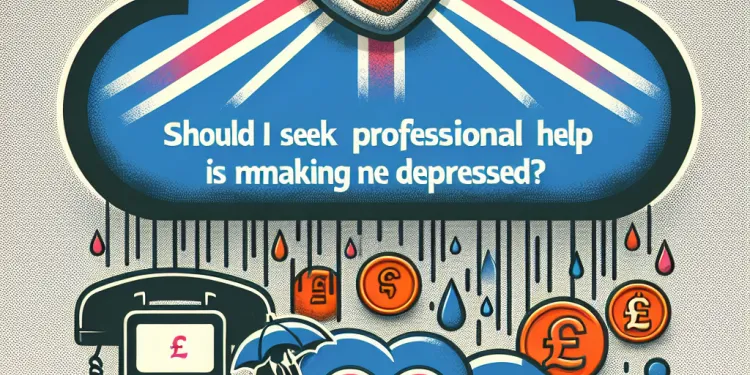
Should I seek professional help if my relationship is making me depressed?
Relevance: 22%
-

Can CFS be prevented?
Relevance: 22%
-
Are there preventative measures for eating disorders?
Relevance: 21%
-
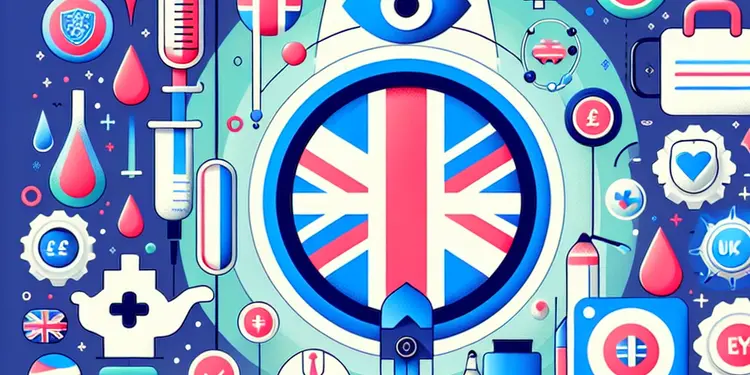
Can hypotony be prevented?
Relevance: 20%
-
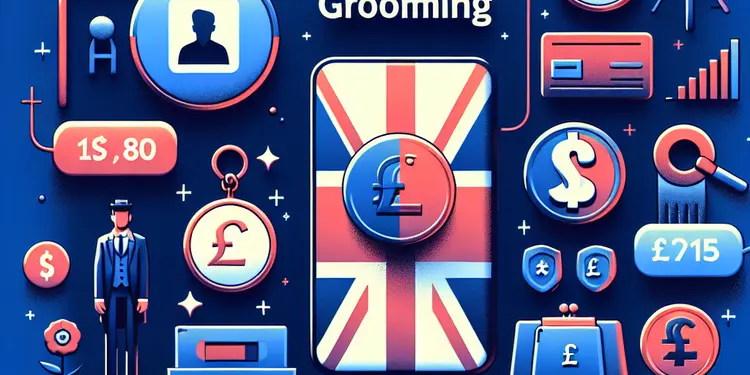
Is it possible to prevent grooming entirely?
Relevance: 20%
Understanding Postnatal Depression
Postnatal depression is a type of mood disorder that can affect individuals after childbirth. It is characterized by feelings of extreme sadness, anxiety, and exhaustion that may interfere with a woman's ability to care for herself or her family. While it is often associated with women, it can also affect partners and adoptive parents.
Risk Factors
Understanding the risk factors for postnatal depression is crucial in considering prevention. These may include a history of depression or mental health issues, a lack of support from family and friends, financial difficulties, or major life changes occurring simultaneously with childbirth. Additionally, hormonal changes and the physical and emotional demands of caring for a newborn may contribute to the development of postnatal depression.
Preventive Measures
While it may not be entirely preventable, certain measures can reduce the risk of developing postnatal depression. Ensuring adequate support is paramount. Engaging in open conversations with partners, family, and friends about mental health expectations and planning for the postpartum period can create a supportive network. Additionally, attending antenatal classes that discuss mental health can prepare expectant parents for the emotional challenges of parenthood.
Health Professional Support
In the UK, professional support from healthcare providers is a critical component of prevention. Pregnant individuals should discuss any mental health concerns with their midwife or GP. These professionals can offer resources and support plans to address mental health needs early. The National Health Service (NHS) provides access to perinatal mental health teams that specialize in managing mental health issues in pregnancy and postpartum.
Self-Care and Lifestyle Considerations
Self-care practices can significantly impact mental health and help prevent postnatal depression. Ensuring adequate rest and nutrition is vital. New parents should be encouraged to rest when possible and seek help with feeding and caring for the newborn. Engaging in mild physical activity, as recommended by health professionals, can also improve mood and energy levels.
Community and Peer Support
Connecting with other parents through support groups either in person or online can provide a sense of community and shared experience. Many local councils and charities offer parenting groups and workshops that create opportunities to share and address parenting concerns collectively.
Conclusion
While postnatal depression may not always be preventable, awareness and proactive measures can significantly reduce its likelihood and impact. The key lies in early identification of risk factors, establishing strong support networks, and maintaining open communication with healthcare providers. With these strategies in place, new parents can experience a more positive postnatal period and better overall mental health outcomes.
Understanding Postnatal Depression
Postnatal depression can happen to people after they have a baby. It makes them feel very sad, worried, and very tired. This can make it hard for them to take care of themselves or their family. It mostly affects mothers, but fathers and adoptive parents can also feel this way.
Risk Factors
Some things can make postnatal depression more likely. These include having had depression before, not having help from family and friends, money problems, or big changes happening at the same time as the baby is born. Also, changes in hormones and looking after a new baby can make someone feel more sad.
Preventive Measures
We can't always stop postnatal depression, but we can make it less likely. It's important to have help and support. Talking with your partner, family, and friends about feelings and getting ready for the new baby can help. Going to classes before the baby is born to learn about feelings and parenting can also help.
Health Professional Support
In the UK, doctors and nurses can help a lot. Pregnant people should talk to their midwife or GP about any worries. These professionals can give help and make a plan to support mental health. The NHS has special teams for helping with mental health during pregnancy and after having a baby.
Self-Care and Lifestyle Considerations
Taking care of yourself is very important. Getting enough sleep and eating good food can help a lot. New parents should try to sleep when the baby sleeps and ask for help when needed. Doing light exercise, as advised by doctors, can help you feel better and have more energy.
Community and Peer Support
Meeting other parents in groups can help you feel connected. These can be in-person or online. Local councils and charities often have groups and workshops for parents. These help parents talk about similar experiences and help each other.
Conclusion
We may not stop postnatal depression completely, but knowing certain things can help. Knowing what might make it happen, having people to help you, and talking with your doctor can really help. With these steps, new parents can feel better and have better mental health.
Frequently Asked Questions
What is postnatal depression?
Postnatal depression is a type of mood disorder that can affect women after childbirth, leading to feelings of sadness, anxiety, and exhaustion.
Can postnatal depression be prevented?
There is no guaranteed way to prevent postnatal depression, but certain strategies may help reduce the risk.
What are risk factors for postnatal depression?
Risk factors include a history of depression, lack of support, stressful life events, and complications in pregnancy or childbirth.
How can a supportive environment help prevent postnatal depression?
Having a strong support system from family and friends can help reduce stress and provide emotional and practical support to new mothers.
Are there any lifestyle changes that might reduce the risk?
Regular physical activity, a balanced diet, and adequate sleep can help improve mood and overall well-being.
Is early intervention important for postnatal depression?
Yes, recognizing and addressing early signs of depression can prevent the condition from worsening.
Can counseling help prevent postnatal depression?
Therapy or counseling can provide emotional support and coping strategies, potentially reducing the risk of developing postnatal depression.
Is education about postnatal depression beneficial?
Education can help women recognize symptoms and understand when to seek help, aiding in early intervention.
Can prenatal care providers help in prevention?
Healthcare providers can screen for depression during and after pregnancy, offering support and referrals when needed.
Does breastfeeding have an effect on postnatal depression?
Breastfeeding can influence mood through hormonal effects, but it's important mothers choose the feeding method that works best for them.
How does stress management play a role in prevention?
Effective stress management techniques can help reduce the risk of developing postnatal depression.
Can partners help in prevention?
Partner involvement and support during pregnancy and after childbirth can be beneficial in reducing the risk.
Is medication an option for prevention?
In some cases, healthcare providers may recommend medication for women at high risk, but this must be carefully managed.
How does a history of mental health issues affect prevention?
A history of mental health issues increases the risk, so proactive steps and monitoring are crucial.
Do postpartum support groups help in prevention?
Support groups provide a space for sharing experiences and emotions, which can be helpful in prevention.
Can relaxation techniques reduce the risk of postnatal depression?
Relaxation techniques such as meditation and yoga can help reduce stress and improve mood.
How does nutrition impact postnatal depression risk?
Proper nutrition supports overall health and can improve energy levels and mood.
What role does sleep play in prevention?
Adequate sleep is crucial for mental well-being and can help reduce the risk of depression.
Can attending classes on childbirth and parenting help?
These classes can prepare parents for the changes ahead and reduce anxiety, which may lower depression risk.
Is it important to set realistic expectations for motherhood?
Understanding that feeling overwhelmed is normal and seeking help when needed can reduce feelings of isolation and depression.
What is feeling sad after having a baby?
Sometimes, after a baby is born, a parent can feel very sad or worried. This feeling is called "feeling sad after having a baby." It is okay to feel this way, and many people do.
There are ways to feel better, like talking to someone you trust or seeing a doctor. They can help you feel happy again.
If reading is hard, you can ask someone to read the information with you. Using pictures or listening to a recording can also help understand better.
After a baby is born, some mums can feel very sad, worried, and very tired. This is called postnatal depression. It happens because of big changes in the body and mind.
Can we stop feeling sad after having a baby?
It's normal to feel sad or worried after having a baby. But there are ways to try to stop it:
- Talk to someone you trust about your feelings.
- Ask for help from family and friends.
- Eat healthy food and get plenty of rest.
- See a doctor or nurse if you feel sad a lot.
- Join a support group for new parents.
Remember, it's okay to ask for help. You are not alone. There are people who can help you feel better.
There is no sure way to stop postnatal depression, but some things might help make it less likely.
What can make a new mom feel very sad after having a baby?
Having a baby is a big change and sometimes new moms can feel very sad afterwards. This is called postnatal depression. Here are some things that might make a new mom feel this way:
- Feeling alone, like nobody is there to help.
- Being very stressed or worried, maybe about money or the baby.
- If the mom has felt very sad before, like being depressed.
- If someone else in the family has also felt very sad like this.
- Having problems with the baby's birth that were scary or difficult.
Help is available for moms who feel very sad after having a baby. Talking with a doctor or a kind friend can help. There are also phone numbers where you can talk to someone who can help. It’s okay to ask for help.
Things that can make someone more at risk are:
- having had depression before,
- not having enough help from family or friends,
- going through hard times in life,
- having problems during pregnancy or when the baby is being born.
How can a supportive environment help stop feeling very sad after having a baby?
Having a baby is a big change. Sometimes, new mums feel very sad after having a baby. This is called postnatal depression. Being in a helpful place can make you feel better.
A supportive environment means having people around you who care. Family and friends can help by listening to you and helping with the baby.
Talking to someone you trust, like a doctor or a nurse, can also help.
It's important to rest and sleep when you can. Eating healthy food and going for short walks can also make you feel better.
If you feel very sad, tell someone. They can help you feel better.
It is good to have family and friends who can help you. They can make you feel less worried and give you help when you need it.
Can I change how I live to stay healthy and safe?
Doing exercise, eating healthy food, and getting enough sleep can make you feel better and happier.
Is getting help early important for feeling sad after having a baby?
If a new mom feels very sad after having a baby, getting help quickly can be very important. This can help her feel better faster.
Talking to a doctor or a counselor can help. They can listen and give advice.
Family and friends can also support and help a new mom feel better.
There are also apps and websites that can give support.
Yes, it's important to see the signs of feeling very sad and get help. This can stop it from getting worse.
Can talking to a counselor stop sadness after having a baby?
Talking to someone can help if you feel sad after having a baby. This can stop you from feeling worse. A counselor is someone who listens and helps you with your feelings.
Here are some things that can help:
- Talking to family and friends.
- Going for a walk or doing something outside.
- Writing down your feelings in a journal.
If you feel very sad, it's important to tell a doctor or a nurse. They can help you find a counselor to talk to.
Talking with a therapist or counselor can help you feel better. They can give you tips to handle your feelings. This might stop you from feeling very sad after having a baby.
Is learning about feeling sad after having a baby helpful?
It can be good to learn about feeling sad after a baby is born. This can help you understand it better.
You can use simple books or watch videos to learn more. Talking to someone who knows a lot about it can also help.
Learning can help women know when they feel sick. It helps them understand when to ask for help. This way, they can get better faster.
Can doctors help pregnant women stay healthy?
Doctors and nurses help pregnant women stay healthy. They give good advice and check-ups. This can stop health problems before they start.
Supporting tools or techniques:
- Use simple words when talking to doctors.
- Write down questions and bring them to appointments.
- Ask for pictures or charts to explain things.
- Bring a friend or family member for support.
Doctors and nurses can check if moms feel sad during and after having a baby. They can help and find more people to help if it is needed.
Does breastfeeding change how a new mom feels?
Having a baby can make moms feel many things. Breastfeeding is when a mom feeds her baby with milk from her own body. We want to know if this can change how a mom feels after having a baby.
If a mom feels very sad or worried after having a baby, this is called postnatal depression. We want to understand if breastfeeding helps moms feel better, worse, or has no change at all.
For moms who feel sad or worried, talking to a doctor or a friend can help. Using an app or keeping a diary to write down feelings can also be good.
Breastfeeding might change how moms feel because of body chemicals called hormones. But the most important thing is for moms to pick the way of feeding that feels right for them.
How does stress management help stop problems?
Learning how to handle stress can help you feel better and stop you from becoming very sad after having a baby.
Can partners help stop problems before they start?
Having a partner's help and support when a baby is coming and after the baby is born can be very good. It can help keep problems away.
Can medicine help stop problems before they start?
Sometimes, doctors might suggest medicine for women who have a high chance of getting sick. This needs to be watched closely.
How do past mental health problems change how we stop them?
If someone has had mental health problems before, it might be easier for them to have these problems again.
When we know the past problems, we can help better. Talking with a doctor or therapist can help a lot. They know how to keep the problems away.
It's important to talk about feelings and ask for help when needed.
If someone has had problems with their mental health before, they might have a bigger chance of having those problems again. It's important to take steps to help and keep an eye on how they are feeling.
Do support groups help new moms feel better?
Support groups are like clubs where people can talk about their feelings and stories. This can help stop problems before they start.
Can relaxing help new moms feel less sad?
Some moms feel very sad after having a baby. This is called postnatal depression.
Relaxing might help these moms feel better. Relaxing can be done in many ways. It can include:
- Taking deep breaths
- Listening to calm music
- Doing gentle exercises like yoga
- Meditating or sitting quietly
These things can help moms feel less worried and more happy.
If you feel sad, tell a grown-up you trust. They can help you talk to a doctor.
Doing things like meditation and yoga can help you feel less stressed and happier.
How does food affect feeling sad after having a baby?
Having a baby can be hard, and some moms feel very sad afterwards. This is called postnatal depression.
Eating the right foods can help moms feel better. Healthy food can make the body and mind strong. This can stop or help with sadness after having a baby.
Eating fruits, vegetables, and fish is good. Drinking lots of water is important too.
If you feel sad, tell a doctor or a family member. They can help you. Using a food diary can also help you keep track of healthy eating.
Eating the right foods helps you stay healthy. It can give you more energy and make you feel happier.
How does sleep help us stay healthy?
Getting enough sleep is very important. It helps keep your mind healthy and can stop you from feeling very sad.
Do classes on having a baby and being a parent help?
Yes! Going to classes about having a baby and being a parent can be really helpful. You learn a lot of new things. It helps you get ready for your baby.
Here are some ways classes can help:
- They teach you what to expect when having a baby.
- You learn how to take care of your baby.
- They show you ways to stay calm and happy.
- You can ask questions in the class.
- You meet other parents, too!
If you want more help, ask someone to go with you, or use pictures and videos. These can make learning more fun!
These classes help parents get ready for changes. They can make parents feel less worried and may help stop them from feeling very sad.
Is it important to have good ideas about being a mom?
It's normal to feel like things are too much sometimes. Asking for help can make you feel less alone and less sad.
Useful Links
This website offers general information and is not a substitute for professional advice.
Always seek guidance from qualified professionals.
If you have any medical concerns or need urgent help, contact a healthcare professional or emergency services immediately.
Some of this content was generated with AI assistance. We’ve done our best to keep it accurate, helpful, and human-friendly.
- Ergsy carfully checks the information in the videos we provide here.
- Videos shown by Youtube after a video has completed, have NOT been reviewed by ERGSY.
- To view, click the arrow in centre of video.
- Most of the videos you find here will have subtitles and/or closed captions available.
- You may need to turn these on, and choose your preferred language.
- Go to the video you'd like to watch.
- If closed captions (CC) are available, settings will be visible on the bottom right of the video player.
- To turn on Captions, click settings .
- To turn off Captions, click settings again.
More Items From Ergsy search
-

Is postnatal depression preventable?
Relevance: 100%
-

Postnatal Depression
Relevance: 86%
-

What is postnatal depression?
Relevance: 84%
-

Is postnatal depression a long-term condition?
Relevance: 81%
-

Are there treatments available for postnatal depression?
Relevance: 80%
-

Postnatal Depression - Leanne's Story
Relevance: 80%
-

How is postnatal depression diagnosed?
Relevance: 80%
-

What causes postnatal depression?
Relevance: 79%
-

What are the symptoms of postnatal depression?
Relevance: 78%
-

Can fathers experience postnatal depression?
Relevance: 77%
-

Are there support groups for postnatal depression?
Relevance: 77%
-

Can postnatal depression recur after treatment?
Relevance: 77%
-

Can postnatal depression affect subsequent pregnancies?
Relevance: 75%
-

Is medication necessary for treating postnatal depression?
Relevance: 75%
-

Can diet impact postnatal depression?
Relevance: 75%
-

How do I know if I have postnatal depression? | NHS
Relevance: 75%
-

What should I do if I suspect I have postnatal depression?
Relevance: 74%
-

Should someone with postnatal depression seek professional help?
Relevance: 73%
-

Can lifestyle changes help with postnatal depression?
Relevance: 73%
-

How does postnatal depression affect bonding with the baby?
Relevance: 72%
-

How is postnatal depression different from the 'baby blues'?
Relevance: 71%
-

How can family members support someone with postnatal depression?
Relevance: 64%
-

How soon after childbirth can postnatal depression occur?
Relevance: 49%
-

How can a relationship contribute to depression?
Relevance: 34%
-

Treating anxiety and depression - www.slam.nhs.uk
Relevance: 33%
-

What are the signs that my relationship is making me depressed?
Relevance: 32%
-

Clinical depression: Lawrence's story | NHS
Relevance: 32%
-

What role do unhealthy dynamics play in causing depression?
Relevance: 32%
-

Are there any self-care strategies to cope with relationship-induced depression?
Relevance: 31%
-

Can physical symptoms be linked to relationship-induced depression?
Relevance: 31%
-

7 Signs Your Relationship is Making You Depressed
Relevance: 30%
-

I couldn't celebrate Hibs beating Hearts because I was that depressed
Relevance: 30%
-

What should I do if my partner dismisses my feelings of depression?
Relevance: 27%
-

Postpartum Health: Mother and Baby
Relevance: 24%
-

How quickly can ketamine alleviate depression symptoms?
Relevance: 22%
-

Should I seek professional help if my relationship is making me depressed?
Relevance: 22%
-

Can CFS be prevented?
Relevance: 22%
-
Are there preventative measures for eating disorders?
Relevance: 21%
-

Can hypotony be prevented?
Relevance: 20%
-

Is it possible to prevent grooming entirely?
Relevance: 20%


